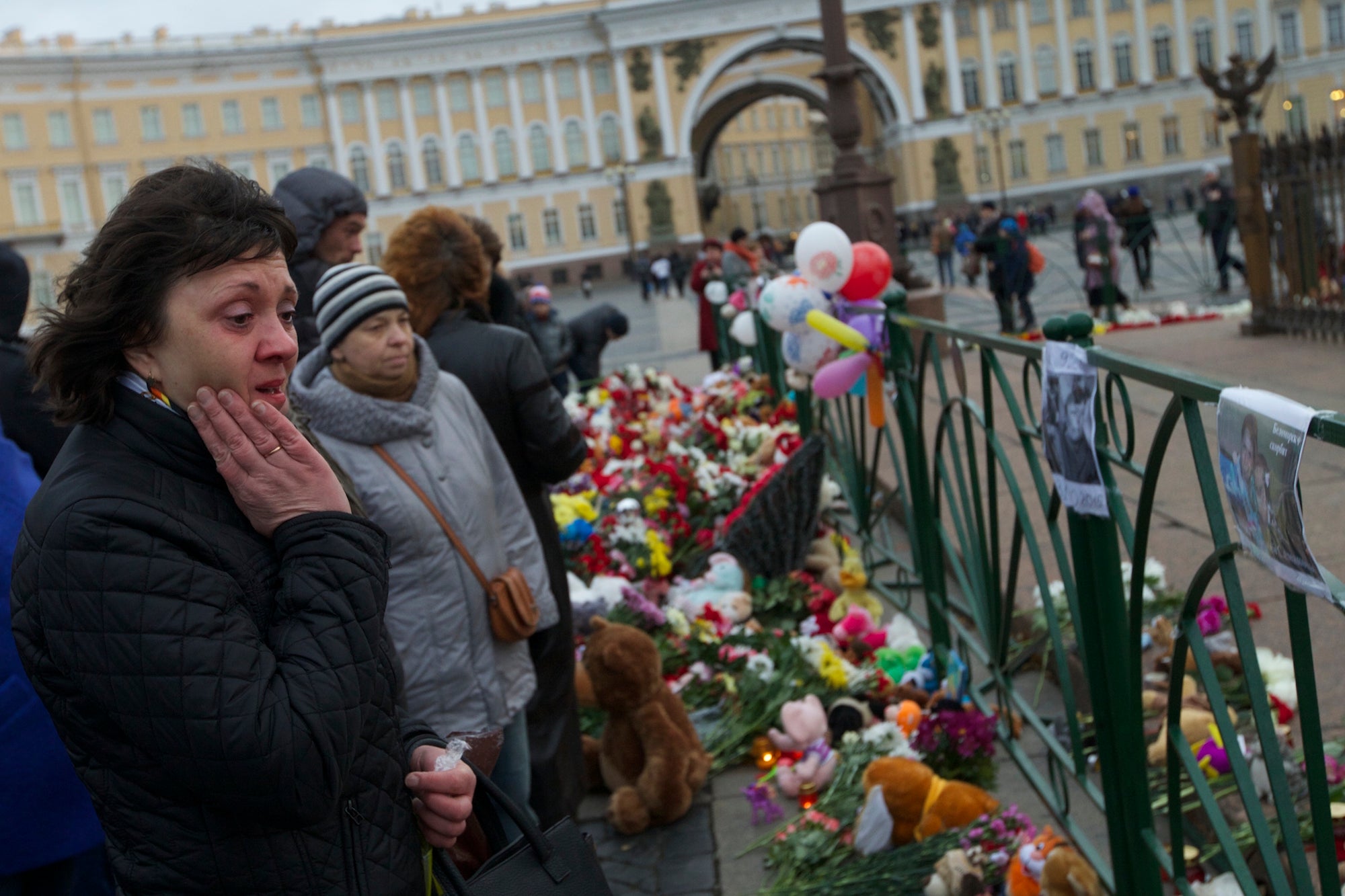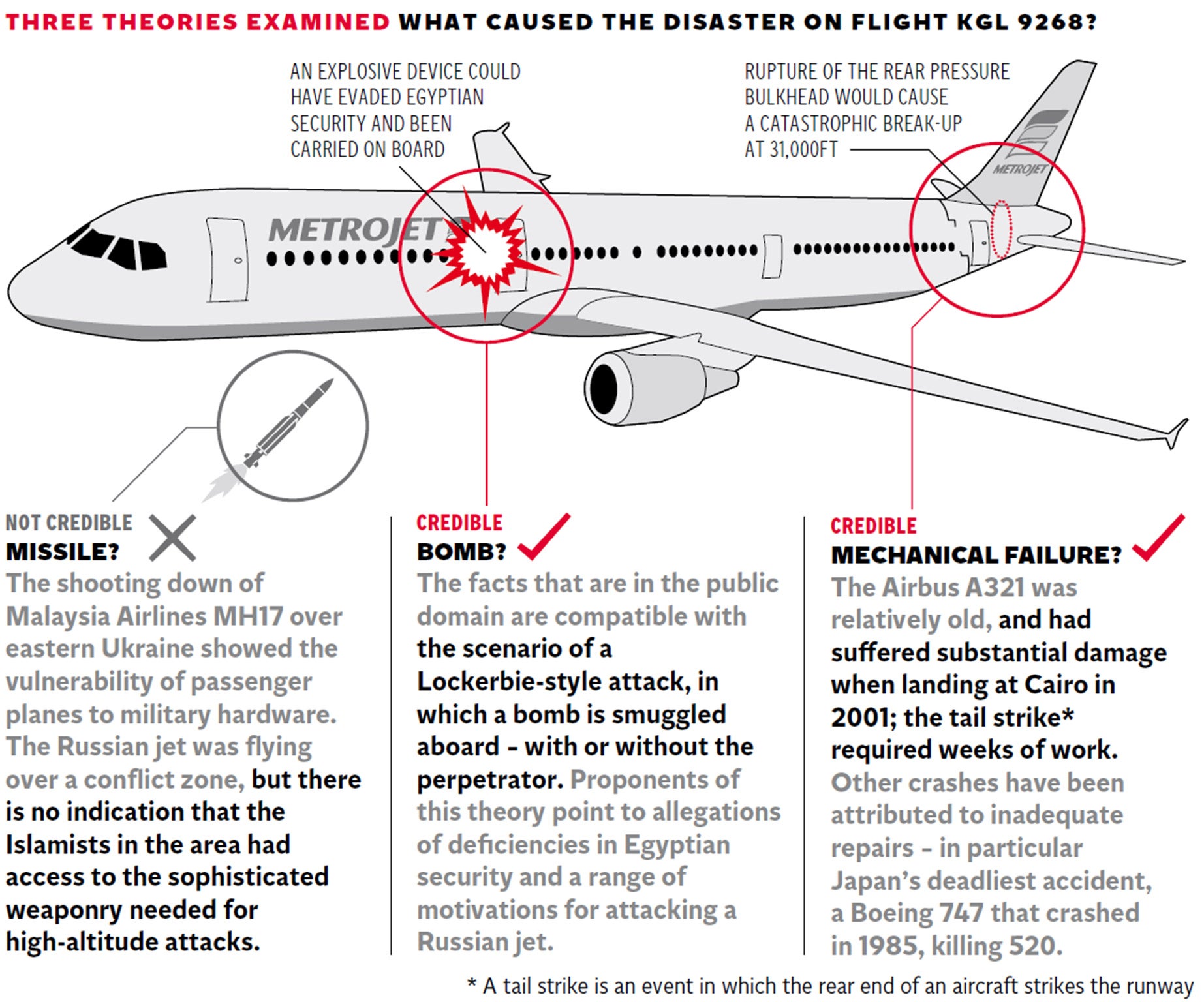Russian plane 'bomb': If Isis really did bring down the Sinai flight, what does that mean for worried travellers?

Your support helps us to tell the story
From reproductive rights to climate change to Big Tech, The Independent is on the ground when the story is developing. Whether it's investigating the financials of Elon Musk's pro-Trump PAC or producing our latest documentary, 'The A Word', which shines a light on the American women fighting for reproductive rights, we know how important it is to parse out the facts from the messaging.
At such a critical moment in US history, we need reporters on the ground. Your donation allows us to keep sending journalists to speak to both sides of the story.
The Independent is trusted by Americans across the entire political spectrum. And unlike many other quality news outlets, we choose not to lock Americans out of our reporting and analysis with paywalls. We believe quality journalism should be available to everyone, paid for by those who can afford it.
Your support makes all the difference.US security officials say a bomb was the most likely cause of Saturday’s plane crash, in which 224 people died. Meanwhile, Britain has taken an unprecedented step to protect UK travellers: Downing Street says no UK airlines may fly from Egypt’s main holiday airport, Sharm el Sheikh, until British aviation experts have assessed the standards of security.
Q It has been reported that US officials believe an Isis bomb was responsible. Twenty-seven years after Lockerbie, how could a passenger plane be attacked in this way?
On 21 December 1988, 270 people died when a Pan Am 747 was blown up by a terrorist bomb over Lockerbie in southern Scotland, shortly after take-off from London en route to New York. The explosives were concealed within passenger luggage that was loaded onto the flight even though the perpetrators were not on board.
After the attack, security changed radically, with much tighter rules preventing checked baggage travelling without passengers on board. After 9/11, tougher procedures still were introduced, for example to prevent departing and arriving passengers mingling.
However, no aviation security professional regards current practice as watertight.
Q What has the British government said?
The UK says it will not allow airlines to fly British citizens from the airport where Saturday’s doomed Russian charter flight departed until the government is sure it is safe to do so.
Planes that flew out from Britain on Wednesday morning planning to return the same evening have been grounded while those checks are carried out.
Q Who are the “aviation experts,” and what will they be looking for?
Each UK airline flying to Sharm el Sheikh - notably British Airways, easyJet, Monarch and Thomson Airways - is likely to have sent their own security chiefs to examine procedures at the airport. In addition, officials from the Department for Transport will be assessing standards. Ministry of Defence staff are also likely to form part of the mission.
Even though there is no certainty yet of the cause of Saturday’s crash, it is possible that a terrorist bomb downed the plane. The experts will be looking at three key areas:
1. The operation of the normal, passenger-facing security search - is it properly managed and monitored?
2. The effectiveness of the baggage screening process: is the technology and staff training up to the recognised standards?
3. The measures that are in place to eliminate the risk of an employee - or someone masquerading as airport staff - planting explosives on board a plane.
Q The Prime Minister is effectively saying to another government: we do not trust your airport security. Why has this happened now, rather than earlier?
Evidence available to Western diplomats increases the likelihood that Saturday’s crash was caused by a bomb. Additionally, it may be that the incident, whatever its cause, has triggered concern about security standards at Sharm el Sheikh airport. It has also been suggested that the British government was taking the necessarily delicate diplomatic steps in Cairo before sending out the experts.

Q How many British holidaymakers are currently in Sharm el Sheikh and the rest of Egypt?
Numbers are difficult to estimate because many holidaymakers are travelling independently rather than with tour operators. However, The Independent has analysed the flights in to Sharm el Sheikh in the past two weeks and estimates that there are currently around 10,000 British holidaymakers in the immediate area. In addition, several hundred are likely to be in other Sinai resort enclaves.
Across the Gulf of Suez in the Hurghada area, there are thought to be around 1,500 holidaymakers. Flights to the city are going ahead as normal, as are operations to Cairo and Luxor. It is possible, depending on what the security experts find, that standards at those airports are also scrutinised.
British tourists in the Nile Valley, including Cairo, Luxor and Aswan, are more difficult to compute. They are likely to be in the region of 5,000-10,000.
Q What happens to the people due to fly back on Wednesday night?
Normal EU passenger rules for airline delays apply - with the added feature of Foreign Office staff being on hand to assist with customer welfare. Passengers and staff will be accommodated in Sharm el Sheikh hotels and provided with meals until the British government is content for the flights to depart. If that were to happen overnight, then once the flight crew have had the necessary rest the planes will fly back around lunchtime on Thursday. Otherwise, the passengers, pilots and cabin crew will remain in Sharm el Sheikh while the government assesses how best to deal with an unprecedented set of circumstances.
Join our commenting forum
Join thought-provoking conversations, follow other Independent readers and see their replies
Comments